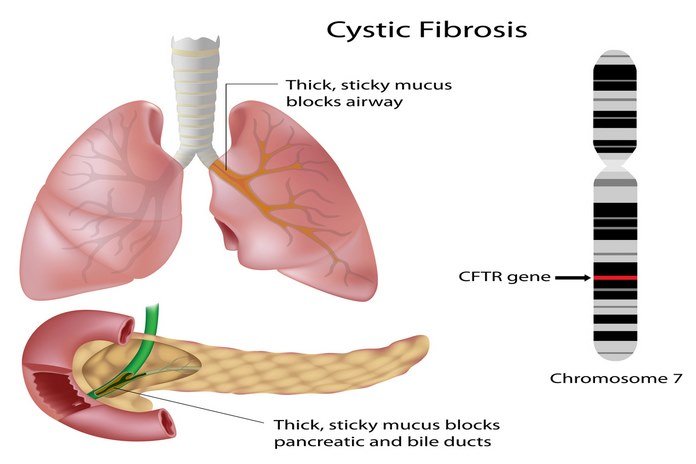Cystic fibrosis is a genetic condition and an inherited disease that affects the lungs and many other body organs. In this disease, the body produces thick and sticky mucus that can block the lungs, making it very difficult for the person to breathe. Usually, the mucus that the body produces is thin and slippery, while if the person has this disease, it becomes thick, sticky, and glue-like. The thick mucus blocks the tubes and builds up inside the airways. It causes obstinate lung infection and limits the ability to breathe. The mucus promotes the infection by trapping germs.
It prevents the enzyme from breaking the food properly and interferes with pancreatic functioning. The thick mucus can also damage the lungs and can be life-threatening. This disease can also cause other complications like liver disease and diabetes. Cystic fibrosis affects 30000 people in the US, with 1000 new cases every year. The most common cause of death in patients is respiratory failure.

